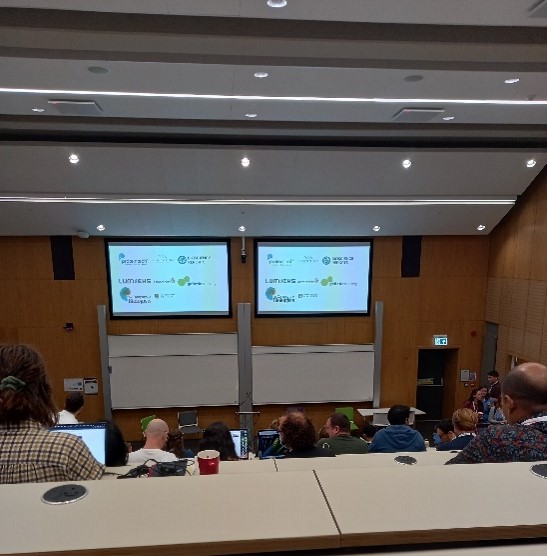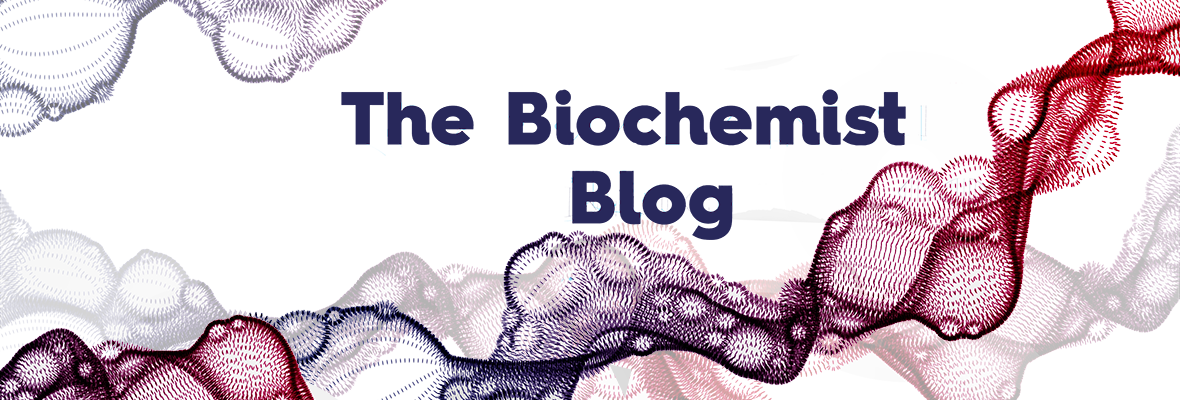
Two years on from the originally scheduled timeslot, the UK DNA Replication Meeting finally got underway under an autumnal September Birmingham sky. The signs from the recent Commonwealth Games gave a dash of colour for those arriving by train into Birmingham New Street, with lots of speakers and over 80 posters to be presented epitomising the excitement for the community to meet and discuss their work. Much has changed since the meeting was first advertised in 2020 but despite the COVID-related disruption, the quality of research on display was incredibly high.

We were welcomed upon registration with a buffet lunch, meeting new faces in the foyer of the Alan Walters building. An additional facet of the meeting was for the invited speakers to suggest postdocs or students in their groups to present in their place, an initiative that I hope will be taken up in other meetings. It certainly gave a fresh look to the speaker list and was a fantastic opportunity for early career researchers to present on a bigger stage. The talks were kicked off by Almutasem Saleh from the Speck lab in London giving an intriguing glimpse into the regulation of DNA replication initiation, the double screen in the lecture theatre giving a suitable analogy to double hexamer formation, which was the theme of several talks. Almutasem was one of three early career researchers to receive talk prizes, an untrivial but not life-changing amount of money we were told. With the bar set extremely high, subsequent talks did not disappoint. The “novelty” talk was provided by Thorsten Allers, focussing on DNA replication in Archaea, and the Keynote lecture from John Diffley highlighted the colossal amount of DNA that is synthesised within the body on a daily basis. Short 3-minute flash talks from selected poster presenters preceded a vibrant first poster session, before a delicious “informal” dinner at the Edgbaston Park Hotel, where many attendees were staying and discussions certainly carried on in the bar late into the night.

Day 2 provided more talks on replication termination, and the role of chromatin and transcription in DNA replication, with more flash talk sessions interspersed in between. A highlight for me was to hear Karlene Cimprich talk about R-loops in relation to genome stability, someone who I have always recognised as a world leader in DNA damage and repair pathways. Day 2 also included a Biochemical Society early career researcher award talk from Tom Deegan, who carried out much of the work in the Diffley and Labib groups, both of whom were in the audience. After receiving his medal, Tom described how an early sketched diagram of replication termination inspired his work, and how the long flight and ski lifts at a conference led to a fruitful collaboration with Joe Yeeles. After presenting my even numbered poster during an engaging second poster session, we were treated to a “formal” dinner at the Edgbaston Park Hotel, making sure that I wore a collared shirt for this one. Exquisite food and served wine fuelled more discussions, and I met more new peers and friends.
The final morning of talks focussed on replication stress, highlighting the relevance of studying DNA replication in the context of disease pathologies. Once the talks were finished, and poster and talk prizes handed out, it was time to leave, filled with inspiration and contacts for future work, and the promise of a follow up meeting in 2 years.
Thank you to the organisers Aga Gambus, Anne Donaldson, Marco Saponaro, Thorsten Allers and to the Biochemical Society for coordinating an excellent programme, and to the team in Birmingham providing refreshments throughout the meeting.
Thank you to the Biochemical Society for the Early Career Bursary to attend the meeting.

Benjamin Foster
Postdoctoral Research Associate
Department of Biochemistry, University of Oxford
Twitter: @BenjaminFozzy
LinkedIn: benjaminfoster1990
Email: benjamin.foster@bioch.ox.ac.uk

